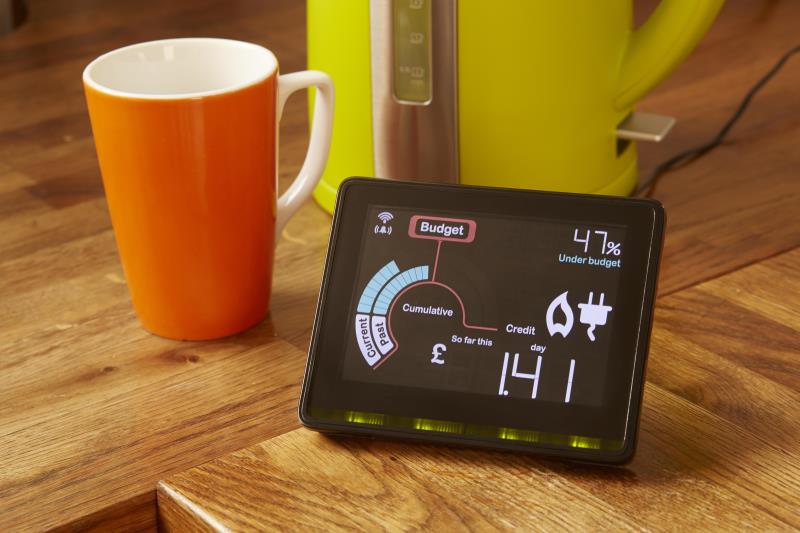Household Bills
Smart meters under attack: what you need to know

A report has heavily criticised the government’s £11bn smart meter roll-out plan. We delve into some of the big issues to help you decide whether a smart meter is right for you.
A scathing report has revealed smart energy meters reduce customer bills by just £11 a month.
The study from a group of cross-party MPs and peers said the planned £11bn roll-out of 53 million smart meters to 30 million homes and small businesses has been “plagued by repeated delays and cost increases”.
Under government plans, every household will be offered a smart meter by 2020. The principle is they provide more accurate bill readings, with the end of estimated bills, and enable people to track their spend on a weekly basis.
The report from The British Infrastructure Group of Parliamentarians (BIG), however, said suppliers are now “almost certain to miss the 2020 deadline” and is calling for the government to “urgently review” the progress of the roll-out. It also called into question whether the programme will “deliver meaningful returns to energy customers at all”.
It said suppliers would reap most of the economic benefits thanks to falling generation and distribution costs and lower expenditure on customer services.
Here, we take a look at three of the main issues highlighted in the report:
Savings
The BIG report slated the economic benefits of having a smart meter saying the expected saving on an annual dual fuel bill in 2020 has fallen from £26 to just £11 because of delays and cost increases of rolling the programme out.
Customers have been funding the smart meter initiative through higher bills with some of the big suppliers putting recent price increases in part down to rising smart meter costs.
The government estimates smart meters will lead to £8bn of supplier benefits. The report says there is “absolutely no guarantee” that any of these savings will be passed on to consumers.
But Smart Energy GB, the group promoting the roll-out of smart meters, said: “The government and Ofgem have been clear that they expect energy suppliers to pass these savings on to customers.”
Smart Energy GB also said its research found people with smart meters – which show you in pounds and pence how much energy you’re using – were more engaged when it came to reducing their energy use. And a study by British Gas of 78,000 people found smart meter customers saved more than 3% on their energy bill in a year compared to people on traditional meters.
Switching
The report said smart meters “dis-incentivise” people from switching provider and potentially saving up to £300 a year.
Of the one million customers with a smart meter who annually switch energy firm, over half are left with an old-style or SMETS I meter which loses its smart functionality – or goes ‘dumb’ – after a switch, it said. This means meter readings need to be taken manually and sent to the new supplier.
Smart Energy GB said this was a “temporary” issue as the government’s plan is for all SMETS I meters to be upgraded so that they have the same capabilities as the new breed of meter, known as SMETS II.
However, the roll-out of SMETS II is already three years behind schedule. And the BIG report points out that 2nd generation meters “will be obsolete” by the time of their roll-out.
Security
Security concerns are one of the main reasons behind the delay to the roll-out of the new SMETS II meters.
The meters cannot be hacked because they are not connected to the internet, but experts have suggested they leave households vulnerable to a cyber-attack.
“Concerns have been raised over the mobile signal being intercepted, bills artificially inflated, and the excess payments siphoned off,” the BIG report said.
It also noted that spy agency GCHQ was forced to intervene in the development of SMETS II after ‘glaring loopholes’ were found.
However, your name, address and bank details are not stored on your smart meter.
Cyber-security expert Martin Jordan, chairman of Network Exploitation and Defence Forum (NED Forum), said: “Unlike your home computer, tablet or smartphone, smart meters are not connected to the internet. Instead they communicate over a closed secure private network. This removes the threat posed by hackers and scam artists who actively try and steal your data on a daily basis.
“Unlike your social media account, smart meters do not hold your life history, your personal information or what you had to eat over the weekend. Smart meters simply measure how much energy you are using.”
Georgie Frost, consumer advocate at GoCompare Energy, said: “Faced with the potential saving of £11 a year by sticking with your smart meter provider, or switching to a better deal, the ‘smart’ move currently must be to switch provider.”